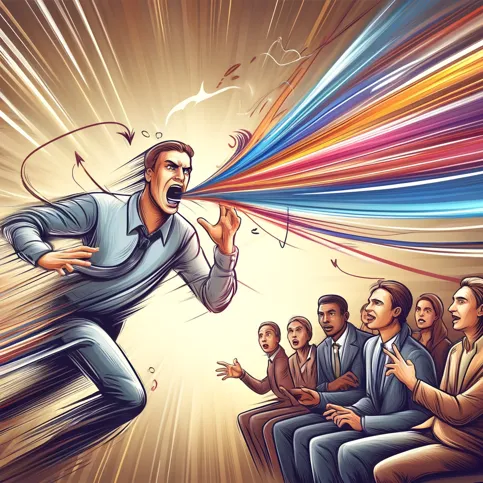What is the meaning of the phrase ‘Talk a blue streak’?
To talk very quickly and rapidly, without stopping for breath. (Usually for a long time.)
What is the origin of the phrase ‘Talk a blue streak’?
‘Talk a blue streak’ is an American phrase dating at least as far back as the early 19th century, although its precise origins are still of much debate.
There are those who say that the phrase came from the idea that someone is talking so fast that the words are coming out like a rapid blue streak of lightning. This is reminiscent of a different phrase ‘A bolt from the blue’. The phrase ‘Blue streak’ has also been used to refer to the rapid movement of horses and their carriages in the 1800s.
Meanwhile, the word ‘Blue’ has almost always been used to refer to things that are off-colour, or even rude. Think ‘Feeling blue’, ‘Blue movie’, ‘Blue blood’, And it is possibly from this influence that a very similar phrase came into use, ‘Curse a blue streak’. The phrase ‘Curse a blue streak’ refers to saying a long string of curse words and insults in very quick succession. Like ‘Talking a blue streak’ but with an emphasis on curse words.
Today, people can often be said to ‘Talk a blue streak’ when they are talking very excitedly and feel the need to get something said at great speed.
What are some notable uses of the phrase ‘Talk a blue streak’?
The metaphor ‘Talk a blue streak’ has come up in literature and popular culture many times over the years. One of the early recorded uses of the phrase appeared in the New York Times in 1889, and then in Harper’s Magazine in 1900.
J.D. Salinger used the phrase in his book ‘The Catcher in the Rye’ published in 1951 when the protagonist Holden describes someone talking rapidly. While Mark Twain, in his book ‘The Innocents Abroad’ published in 1869 used a similar expression, specifically ‘Talks like a streak of lightning’.

